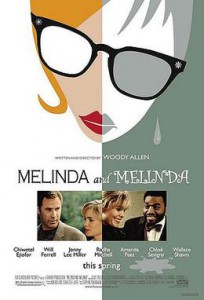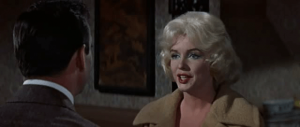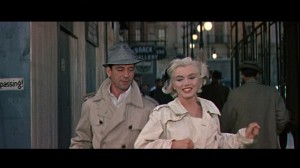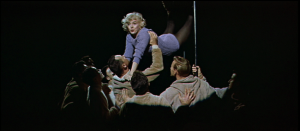Reposted to mourn the death in 2015 of a titan, at age 106. From the July-August 2008 Film Comment, with the subhead “Negotiating the singular career of Portuguese master Manoel de Oliveira on the eve of his 100th birthday “. — J.R.
The cinema isn’t easy
Because life is complicated
And art indefinable.
Making life indefinable
And art
complicated.
— Manoel de Oliveira, “Cinematographic Poem,” 1986 (translated from the Portuguese)
Since this century has taught us, and continues to teach us, that human beings can learn to live under the most brutalized and theoretically intolerable conditions, it is not easy to grasp the extent of the, unfortunately accelerating, return to what our 19th-century ancestors would have called the standards of barbarism.
— Eric Hobsbawm, The Age of Extremes: A History of the World, 1914-1991

To insist that all great filmmakers contain multitudes is to risk a counter-response — that the same might equally be said of the not-so-great. Just as much labor can be expended on bad work as on good, and this applies to the labor of viewers and filmmakers alike. Read more
This is the pre-edited version of a review published in its post-edited form elsewhere on this web site, as well as in the March 25, 2005 issue of the Chicago Reader. — J.R.

MELINDA AND MELINDA*
DIRECTED AND WRITTEN BY WOODY ALLEN WITH RADHA MITCHELL, WILL FERRELL, CHLOE SEVIGNY, CHIWETEL EJIOFOR, JONNY LEE MILLER, BROOKE SMITH, WALLACE SHAWN, AND LARRY PINE

“Amongst a democratic population, all the intellectual faculties of the workman are directed to…two objects: he strives to invent methods which may enable him not only to work better, but quicker and cheaper; or, if he cannot succeed in that, to diminish the intrinsic quality of the thing he makes, without rendering it wholly unfit for the use for which it is intended. When none but the wealthy had watches, they were almost all very good ones; few are now made which are worth much, but everybody has one in his pocket. Thus the democratic principle not only tends to direct the mind to the useful arts, but it induces the artisan to produce with great rapidity many imperfect commodities, and the consumer to content himself with these commodities.”
— Alexis de Tocqueville, Democracy in America (1835)
De Tocqueville’s 170-year-old account of why Americans often blanch at intellectual abstraction and art-for-art’s-sake — and prefer accessibility over complexity when it comes to both thought and art — still seems pretty up to date. Read more
From the November 25, 2005 Chicago Reader. — J.R.


Although this 1960 movie is usually accorded a low place in the Marilyn Monroe canon — understandably so, because the comedy and musical numbers never quite take off the way they’re supposed to, and the central plot premise is more than a little labored — it deserves to be reevaluated for the intelligence of Monroe’s performance and the rare independence of her character; this one was made after her brush with Actors Studio, and she isn’t playing a bimbo. Yves Montand costars as a reclusive billionaire who discovers he’s being parodied in an off-Broadway revue; he tries out for the part himself, incognito, and she’s the chorus girl who helps him along. George Cukor directed, in ‘Scope, and lent a certain glamour and polish to the proceedings. With Tony Randall, Wilfrid Hyde-White, Frankie Vaughan (whose number, “Incurably Romantic,” isn’t half-bad), and bits by Milton Berle, Bing Crosby, and Gene Kelly; Norman Krasna wrote the querulous script. 118 min. (JR)
 Read more
Read more






